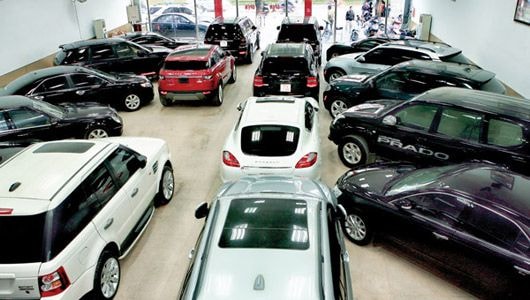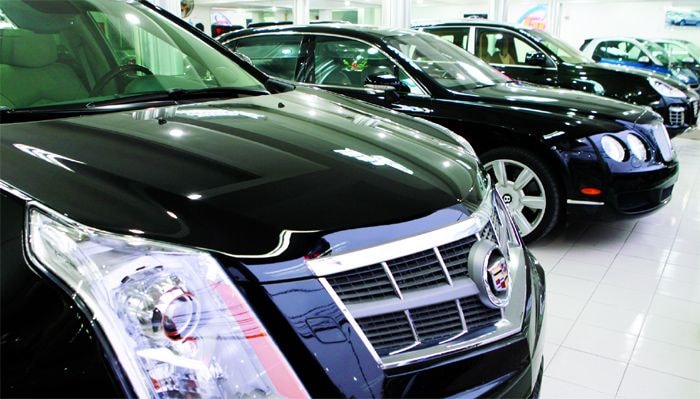Vietnamese people buy cheap cars: Just keep dreaming?
The import tax on cars to Vietnam will eventually be reduced to 0%, but there are enough reasons for people not to dream of buying cheap cars. Taxes and fees will weigh heavily on cars, and then the monopoly on distribution will have the right to decide the selling price, and the sluggish auto industry will not be able to produce cheap cars.
Pay all kinds of taxes and fees
Responding to the press recently, Deputy Minister of Industry and Trade, Tran Tuan Anh said that whether car prices are cheaper or not depends on the policies of ministries and branches, based on the law, the law will be built, he is not competent to talk about this issue.
Previously, a leader of the General Department of Customs commented that despite many changes in import tax, the budget is not worried about revenue reduction. One of the reasons given by this person is the possibility of changing the price of calculating car tax, to compensate for the reduction in tax rates according to the roadmap. In addition to import tax, car prices currently depend on three other types of taxes and fees, including special consumption tax, value added tax (VAT) and registration fee, which are not governed by free trade agreements or WTO commitments.
 |
| Tools such as special consumption tax, registration fees... will be used thoroughly when the import tax on cars into Vietnam is reduced to 0%. |
“Just for a certain purpose, such as limiting vehicles, avoiding traffic jams, worrying about trade deficit,... the management agency can adjust one or all three of these tools. Thus, reducing import tax is the same as not,” he commented.
This statement is completely justified.
The Ministry of Industry and Trade said that with 8 free trade agreements and 7 more agreements that Vietnam is about to sign, budget revenue will be sharply reduced when the rate of eliminating import tax is up to 90-100%. Not to mention, export tax must also be eliminated. Meanwhile, the proportion of revenue from import tax compared to total budget revenue is still quite large. It is expected that in 2015, revenue from import and export activities has decreased sharply but still accounts for 9.2% of total budget revenue. By 2018, tax on most imported goods will be 0%, total budget revenue will decrease significantly.
Of course, when this revenue source decreases, the management agencies are forced to increase taxes and fees that are not bound by commitments, such as special consumption tax, value added tax, and registration fees to compensate. This will make it impossible for car prices to decrease.
By 2018, a series of domestic automobile enterprises will stop production to switch to importing cars for distribution, because assembled cars cannot compete with imported cars. Increased car import turnover also means increased trade deficit, which will force the State to find ways to limit imported cars. High demand, limited cars, scarcity will occur, of course car prices will also be pushed up. The hope of using imported cars, good quality, cheap is still just a dream.
The sluggish auto industry and monopoly distribution
There are also many other reasons why imported car prices cannot be reduced. Since 2011, the Ministry of Industry and Trade has issued Circular 20, with the regulation that car importers must have genuine authorization papers. This makes a series of commercial enterprises no longer able to import complete cars for sale and creates a distribution monopoly for a number of genuine distributors. And of course, the price will be decided by these distributors.
 |
| There are many reasons why imported cars in Vietnam cannot be cheap (illustrative photo) |
For example, in early 2015, the import tax rate for cars with cylinder capacity over 2,500 cc decreased from 68% to 64%; the tax rate for four-wheel drive vehicles (4-wheel drive vehicles) decreased from 59% to 55%. Along with that, the exchange rate of the Euro compared to VND decreased sharply. In fact, many car models imported from Europe can be discounted by hundreds of millions of VND, but there are very few distributors in Vietnam that reduce the price of cars. In fact, many German car models have become strangely scarce.
The reason why authorized distributors can do this is because they have exclusive rights to distribute the cars. Customers want to buy cars, if they don’t buy from them, they can’t buy from anyone else.
The same is true for imported cars from the ASEAN region. In 2014, when the import tax rate for complete cars was reduced from 60% to 50%, a series of imported cars from Thailand hardly saw any price reduction. Even for pickup trucks, the import tax rate was only 5%, special consumption tax 15%, registration fee 2%, but the price was still sky-high. A dual-cabin pickup truck equipped with modern features costs from 700-900 million VND, much higher than the selling price in Thailand.
An auto dealer said the reason why pickup truck prices are so high is because if they reduce prices sharply, consumers will switch to pickup trucks, and other vehicles will not be able to sell. Of course, the reason why these companies can do this is because of the support of Circular 20, which gives them the right to exclusive distribution.
An expert in the automobile industry said that Vietnamese people will only truly enjoy cheap cars when the domestic automobile industry develops strongly, meeting most of the demand, like Thailand and Indonesia today. It is impossible to rely only on imports. However, the Vietnamese automobile industry probably has no more opportunities to develop, so do not hope to own cheap cars one day.
According to VietNamnet






